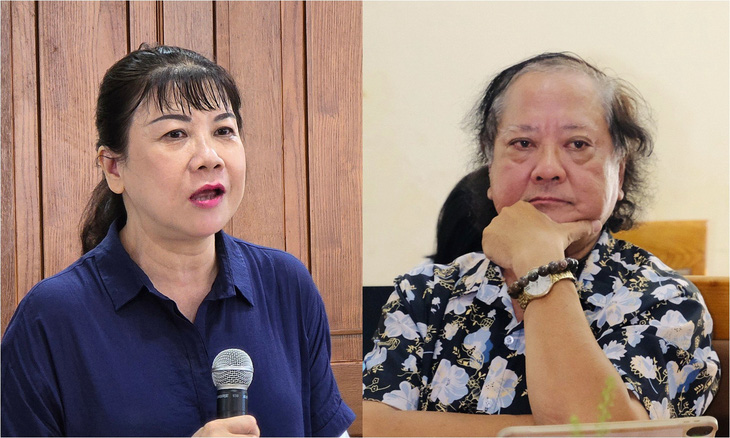
Ms. Nguyen Thi My Liem and Mr. Do Lenh Hung Tu - Photo: Mi Ly
The scientific workshop "Theoretical and practical basis for the development of Vietnamese art in the contemporary context for sustainable development" took place on June 30 in Ho Chi Minh City. The workshop was organized by the Vietnam National Institute of Culture and Arts Studies.
The workshop was chaired by Director of the Vietnam National Institute of Culture and Arts Studies Nguyen Thi Thu Phuong and Chairman of the Ho Chi Minh City Fine Arts Association Nguyen Xuan Tien.
Technology sings for artists, even in cải lương they lip-sync
In her speech Developing Vietnamese music art in the digital age , Associate Professor Dr. Nguyen Thi My Liem (Saigon University) stated the reality of digital technology "attacking" music in composing, recording and performing, changing today's music.
Ms. Liem pointed out that the technology content in music performances today is increasing, leading to the situation: "Art programs are in a technology race, gradually becoming technology programs".

Ms. Nguyen Thi Thu Phuong - Director of Vietnam National Institute of Culture and Arts - Photo: Organizing Committee
For a long time, the press has been speaking out about the public "watching music" instead of listening to music and the problem of "lip-syncing".
Ms. Liem gave an example in her speech: "To the point that even Cai Luong has been turned away by many fans because of lip-syncing.
The orchestra is a pre-recorded disc, causing the cai luong artist to only try to follow the pre-recorded sound to "imitate", "lip-sync", "match" or just act according to their own pre-recorded sound, acting like a puppet, losing the acting characteristics of traditional stage art".
The author points out the process of "turning an ordinary voice into an extraordinary one" thanks to technology that helps the voice become thicker, more colorful, corrects pitch and rhythm errors, creates multiple voices, sings harmony, overlaps sounds...
As a result, the musical work loses its "soul" because the singer does not think but relies on technology.
In conclusion, Ms. Liem affirmed that it is impossible to oppose technology in music because it still brings convenience and efficiency.
"The fact that technology can "fake" art is not its fault but the fault of the user" - she believes that if applied and managed well, technology can help make music and art more complete and beautiful, contributing to sustainable development, suitable for the times.

Peach, Pho and Piano cost 20 billion, revenue 20.8 billion but that doesn't mean it's profitable - Photo: DPCC
Peach, pho and piano only make 50 billion profit, why did the Tunnels have to 'refuse' 30 billion
Chairman of the Vietnam Cinema Association Do Lenh Hung Tu stated that the reason why state-owned films are completely losing ground in the market is because they only invest in production and hardly invest in promoting the films when they are released:
"Apart from the maximum cost of 100 million VND for the only press conference of each film, there are no other expenses for promotion such as design, printing posters, making TVCs...
This is a big obstacle for many films invested by the State," he said.
As for distribution, with the restrictive mechanism in the law on using public investment, films produced by the State have difficulty reaching the commercial theater system, most of them are only shown a few times during holidays or have few ticket sales at the National Cinema Center or a few state theaters.

"I see yellow flowers on green grass" has high revenue but it is difficult to share profits because there is no clear mechanism - Photo: DPCC
Due to lack of advertising costs, the film lost viewers and was put in storage.
Recently, the movie Dao, Pho and Piano had a budget of 20 billion VND and earned 20.8 billion VND, some people mistakenly thought it was profitable.
But Mr. Tu said that according to market rules, after deducting theater rental, taxes, service fees, electricity, water... the revenue of Dao, Pho and Piano must reach over 50 billion VND to make a profit.
I See Yellow Flowers on the Green Grass (2015) is a film commissioned by the State with a combination of socialized capital. When the film had high revenue (78 billion VND), the State was "startled", not knowing how to divide the profits because this was a public and private project, and there were no adjustments to the law on the use of public investment capital.
Finally, the State no longer allows the combination of State capital and socialized capital in film production investment.
The result is the unfortunate case of the film Tunnels by director Bui Thac Chuyen - a worthy script to celebrate the 50th anniversary of the country's reunification. The film was estimated to need 60 billion VND. The government decided to sponsor 30 billion.
When the filmmaker asked for permission to mobilize the remaining 30 billion from social capital, the State did not approve.
In the end, the director had to reject state funding to raise 100% of the capital from outside sources. Mr. Tu said the film raised 45 billion VND, not including advertising.
26 Vietnamese films have lost money in the past year and a half
Director Nguyen Huu Tuan cited statistics from Moveek and Box Office Vietnam to conclude: in 2023, 18 Vietnamese commercial films lost money; and in the first six months of 2024, there were 8 films that lost money.
In particular, the film Southern Forest Land earned 140 billion VND but the producer still had to report a loss due to the huge production investment costs.
According to Mr. Tuan, the vast majority of films lose money due to weakness, but there is also another reason: Vietnamese films do not receive support from the home theater systems.
He proposed that the State should have some practical support policies to "save the life of Vietnamese films in Vietnamese theaters".
 Don't be too obsessed with renewing cải lương.
Don't be too obsessed with renewing cải lương.Source: https://tuoitre.vn/cai-luong-ma-hat-nhep-nhu-con-roi-phim-nha-nuoc-sao-cu-that-thu-20240701101402672.htm


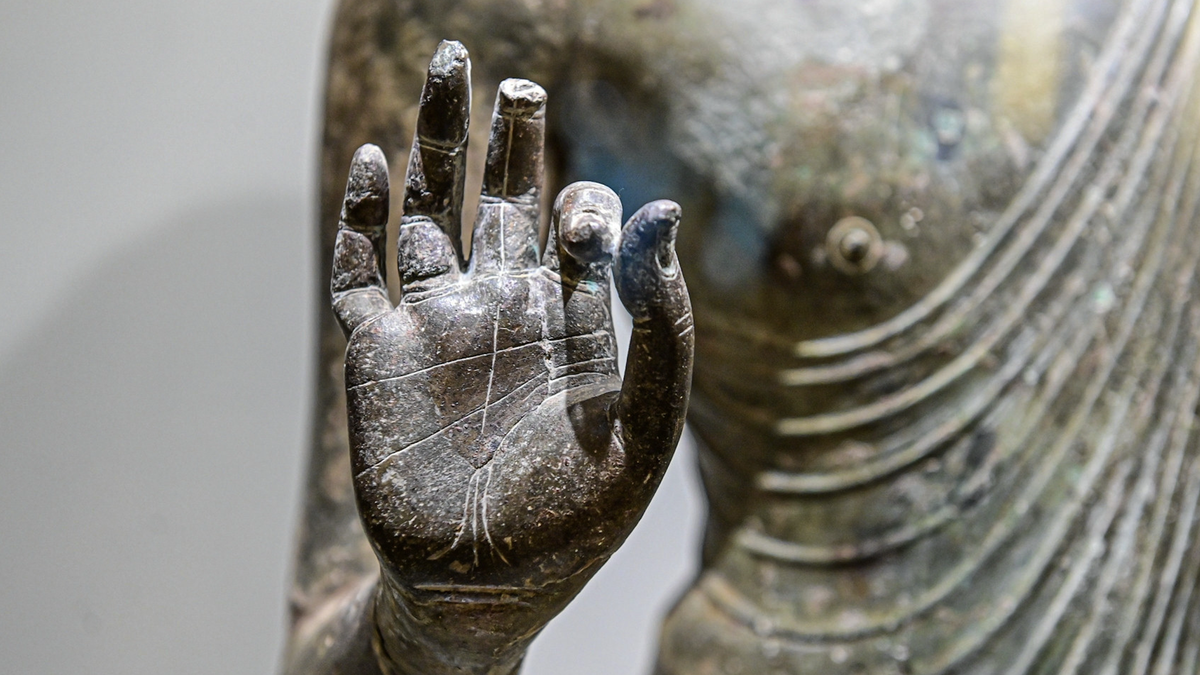








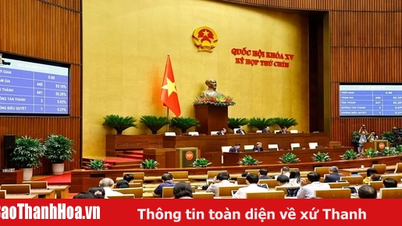














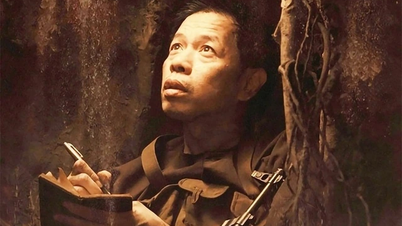
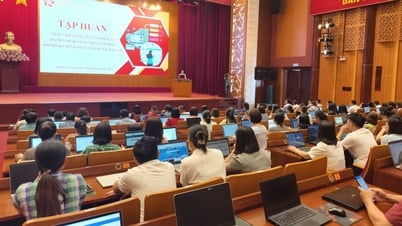





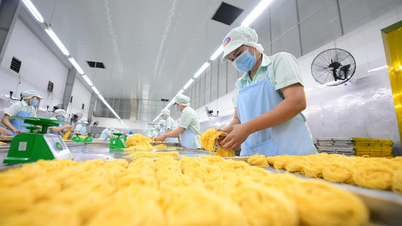













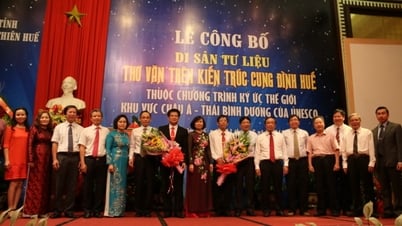
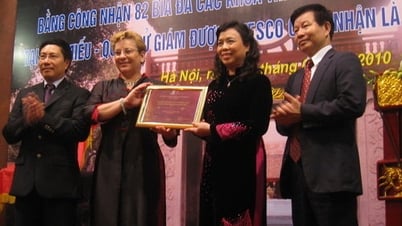















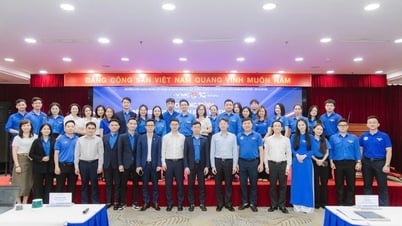
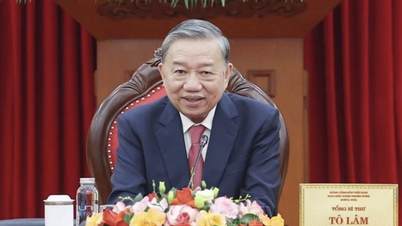















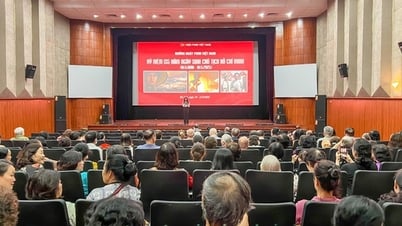
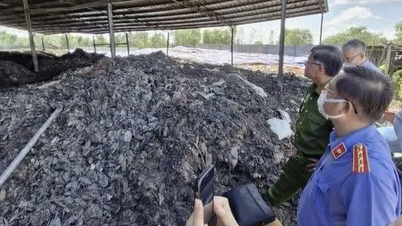









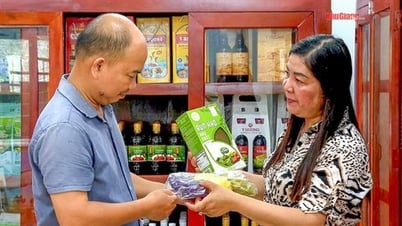














Comment (0)